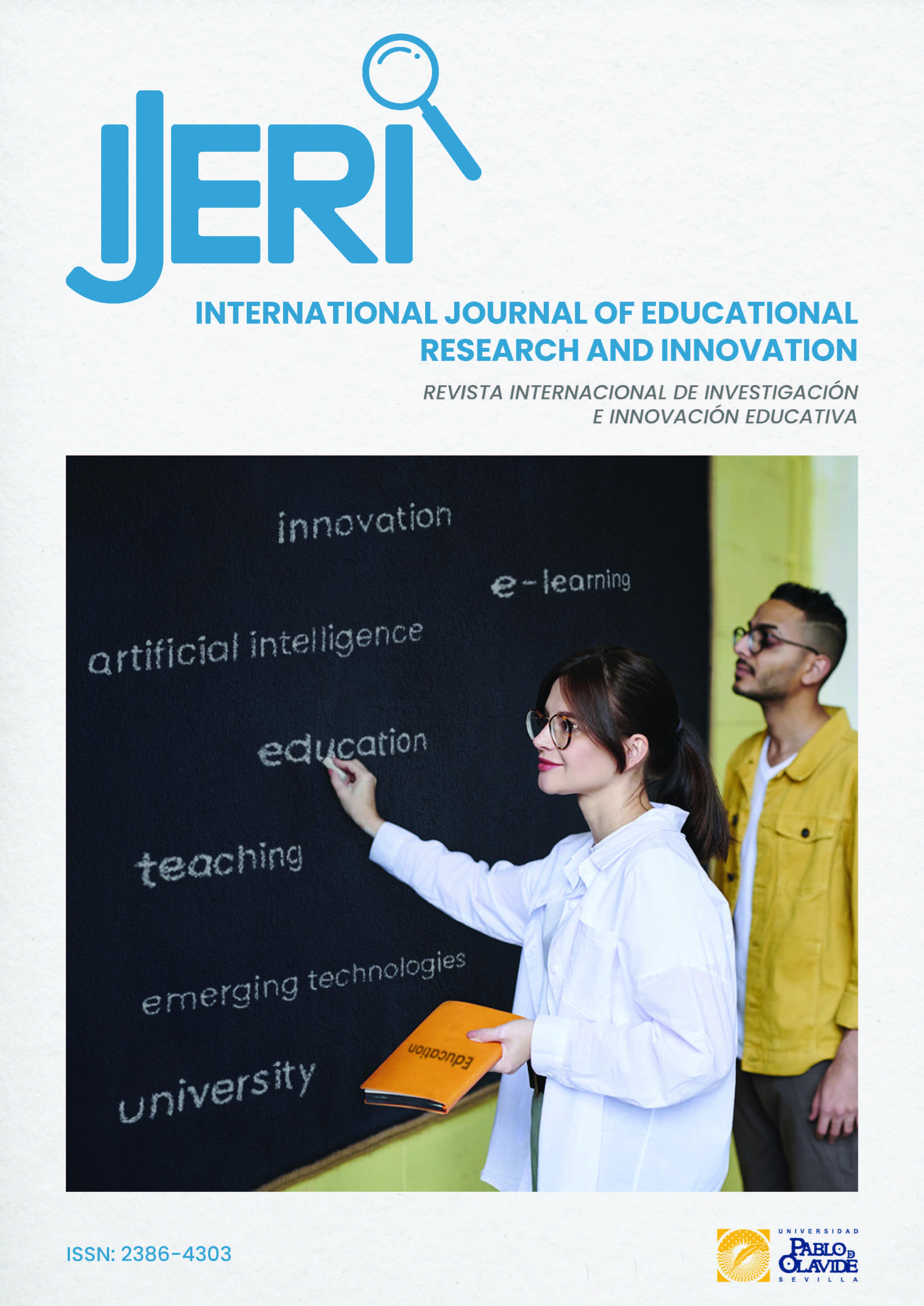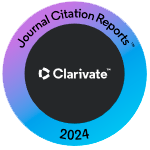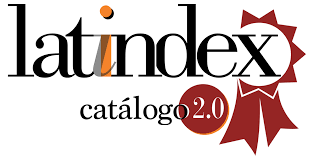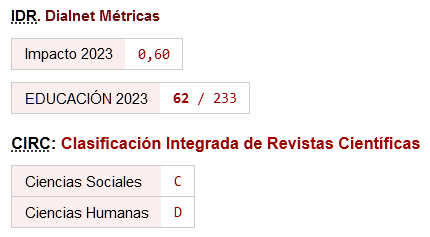Social Media in Higher Education
systematic literature review (2018-2023)
DOI:
https://doi.org/10.46661/ijeri.9602Keywords:
Teachers, Higher education, Literature review, Social MediaAbstract
This review describes the use of social media in higher education, emphasizing the practices and the roles of teachers, who perceive them as a distracting and addictive element as opposed to the perception of students. A systematic literature review was conducted (2018-2023), following the PRISMA protocol, were 71 articles extracted from the Wos and Scopus databases were analyzed to answer four general research questions. The evidence shows the importance of an active role in the teacher guiding emerging methologies during the teaching-learning process, in wich consequences appear that the authors classify as positive and negative based on three factors: social media, students and teachers. Social media are associated with learning results, use promotes motivation and commitment, generating better results. Due to the global nature of this resource and social, cultural and economic differences, a digital divide is created that hinders or favors the use of this resource as an educational tool.
Downloads
References
Acuyo, A. (2022). Reviewing the literature on professional development for higher education tutors in the work-from-home era: is it time to reconsider the integration of social media? Education and Information Technologies, 27(1), 89-113. https://doi.org/10.1007/s10639-021-10603-2
Al Balushi, W., Al-Busaidi, F. S., Malik, A., y Al-Salti, Z. (2022). Social Media Use in Higher Education During the COVID-19 Pandemic: A Systematic Literature Review. International Journal of Emerging Technologies in Learning (Online), 17(24), 4. https://doi.org/10.3991/ijet.v17i24.32399
Area, M. (2008). Las Redes Sociales En Internet Como Espacios Para La Formación Del Profesorado. Razón y Palabra, 13(63), 12. https://acortar.link/CKVjuE
Boyd, D.M. y Ellison, N.B. (2007). Sitios de redes sociales; definición, historia y erudición. Revista de comunicación mediada por computadora, 13(1), 210. https://doi.org/10.1111/j.1083-6101.2007.00393.x
Buntins, K., Bond, M., Bedenlier, S., Kerres, M., y Zawacki-Richter, O. (2019). Systematic reviews in educational research: Methodology, perspectives and application. Springer. https://doi.org/10.3102/0013189X211017495
Buxarrais, M. R. (2016). Redes sociales y educación. Education in the Knowledge Society (EKS), 17(2), 15-20. https://doi.org/10.14201/eks20161721520
Chugh, R., Grose, R., y Macht, S. A. (2021). Social media usage by higher education academics: A scoping review of the literature. Education and Information Technologies, 26, 983-999. https://doi.org/10.1007/s10639-020-10288-z
Dille, K. B., y Røkenes, F. M. (2021). Teachers’ professional development in formal online communities: A scoping review. Teaching and Teacher Education, 105, 103431. https://doi.org/https://doi.org/10.1016/j.tate.2021.103431
Escobar, J. F. G., y Mira, Y. M. O. (2019). La globalización y la importancia de las TIC en el desarrollo social. Revista reflexiones y saberes, (11), 2-9. https://acortar.link/s7FRO1
García, S. A., y García, M. D. M. A. (2014). Las redes sociales en las universidades españolas. Revista de Comunicación de la SEECI, (33), 132-140. https://doi.org/10.15198/seeci.2014.33.132-140
Haddaway, N. R., Page, M. J., Pritchard, C. C., y McGuinness, L. A. (2022). PRISMA2020: An R package and Shiny app for producing PRISMA 2020-compliant flow diagrams, with interactivity for optimised digital transparency and Open Synthesis Campbell Systematic Reviews, 18, e1230. https://doi.org/10.1002/cl2.1230
Hamid, S., Chang, S. y Kurnia, S. (2009). Identificar el uso de las redes sociales en línea en la educación superior. Trabajo presentado en la ASCILITE.
Kaplan, A. M., y Haenlein, M. (2016). Higher education and the digital revolution: About MOOCs, SPOCs, social media, and the Cookie Monster. Business horizons, 59(4), 441-450. https://doi.org/10.1016/j.bushor.2016.03.008
Krutka, D. G., y Carpenter, J. P. (2016). Why social media must have a place in schools. Kappa Delta Pi Record, 52(1), 6-10. https://doi.org/10.1080/00228958.2016.1123048
Lagla, G. A. F., Chisag, J. C. C., Moreano, J. A. C., Pico, O. A. G., y Pulloquinga, R. H. M. (2017). La influencia de las redes sociales en los estudiantes universitarios. Boletín Redipe, 6(4), 56-65. https://acortar.link/lkJjOZ
López-Carril, S., Añó, V., y González-Serrano, M. H. (2020). Introducing TED Talks as a Pedagogical Resource in Sport Management Education through YouTube and LinkedIn. Sustainability, 12(23), 10161. MDPI AG. http://dx.doi.org/10.3390/su122310161
Loughran, J, & Hamilton, L. (2016). Developing and Understanding of Teacher Education. In J. Loughran y M. L. Hamilton (Eds.), International Handbook of Teacher Education (pp. 3–22). Springer. https://doi.org/10.1007/978-981-10-0366-0_1
Marcelo-Martínez, P., Yot-Domínguez, C., y Marcelo, C. (2023). Los docentes y las redes sociales: Usos y motivaciones. Revista de Educación a Distancia (RED), 23(72). https://doi.org/10.6018/red.523561
Sam, C., Naicker, N., y Adebiyi, M. (2021). Dimensionality reduction of social media application attributes for ubiquitous learning using principal component analysis. Mobile Information Systems, 2021, 1-10. https://doi.org/10.1155/2021/6633223
Villalobos, C. M. (2016). Las redes sociales como herramientas de aprendizaje: algunas consideraciones. Revista de estudios latinos: RELat, 16, 225-256. https://doi.org/10.23808/rel.v16i0.87689
Zincir, O. (2017). Uso de las redes sociales por parte de los trabajadores del conocimiento como herramienta de gestión del conocimiento personal. En Chugh, R (ed), Aprovechar las redes sociales como herramienta de gestión del conocimiento, IGI Global, 108-124. https://doi.org/10.4018/978-1-5225-0495-5.ch006
Downloads
Published
How to Cite
Issue
Section
License
Copyright (c) 2024 Nicolás Cendrero Ramos, Jesús Valverde Berrocoso

This work is licensed under a Creative Commons Attribution-NonCommercial-NoDerivatives 4.0 International License.











